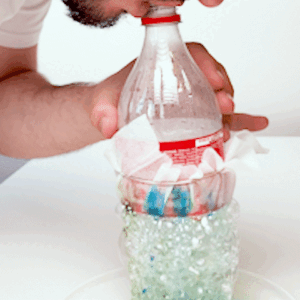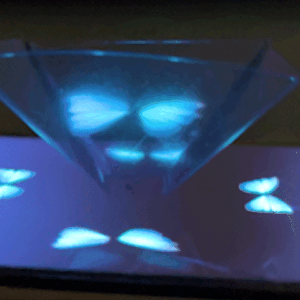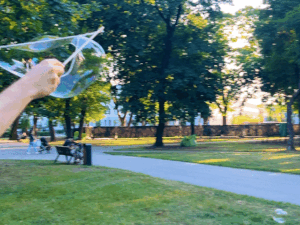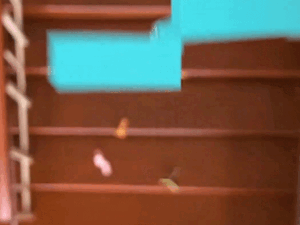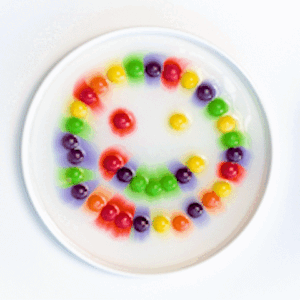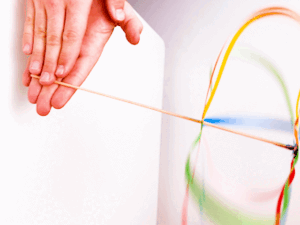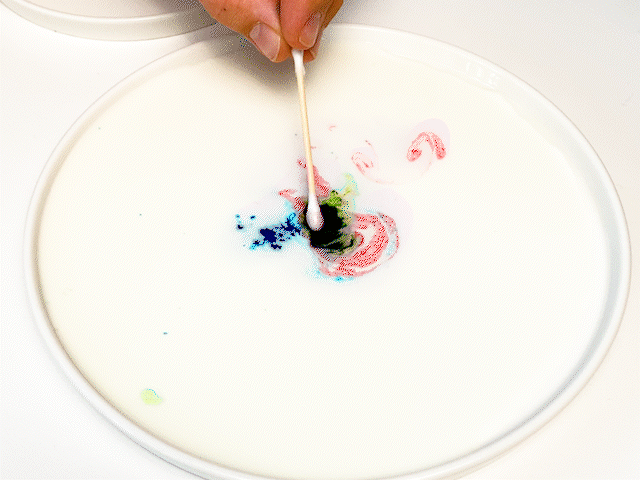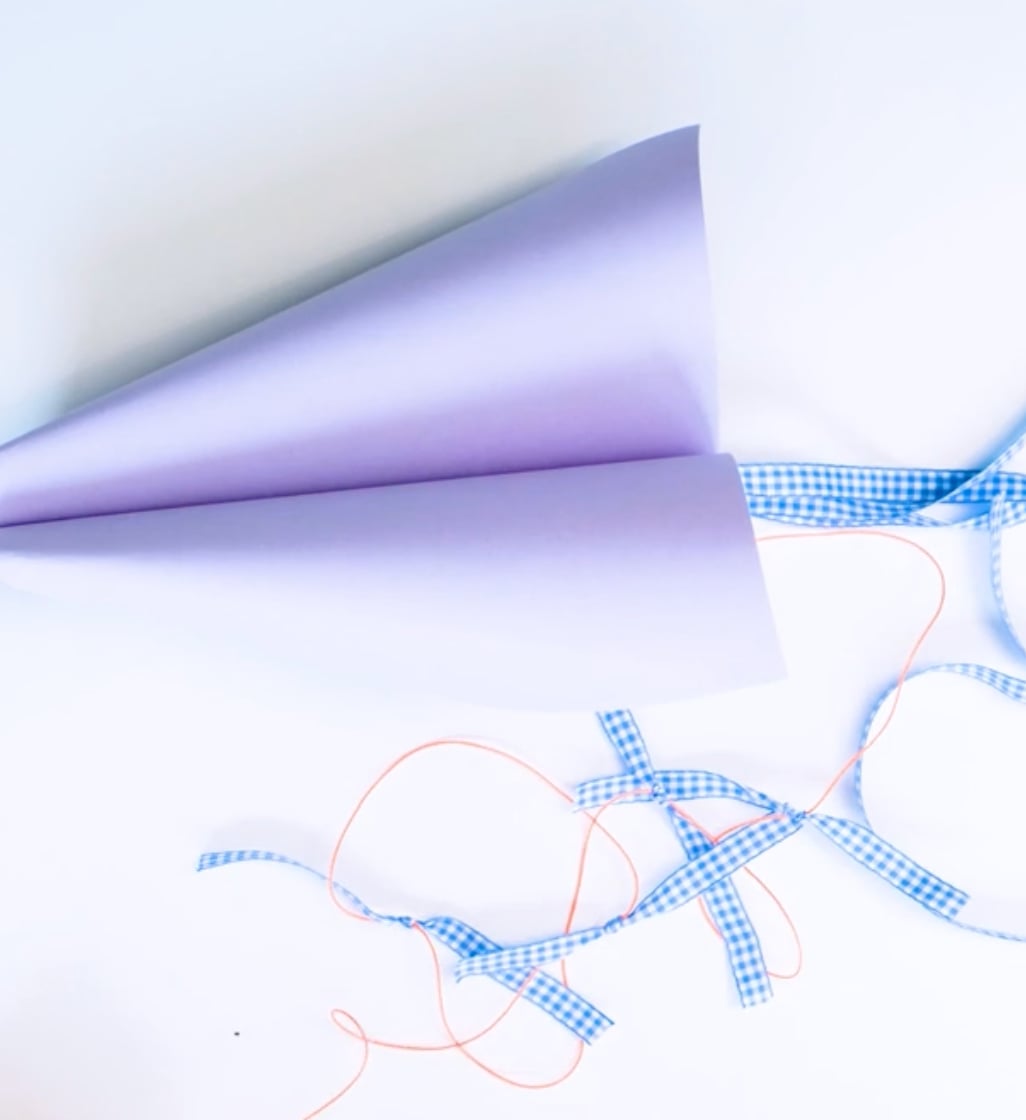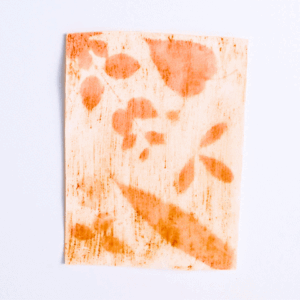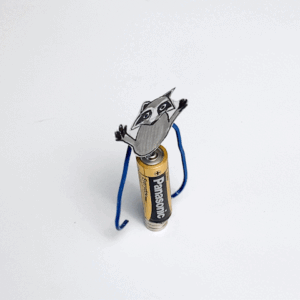
Compass
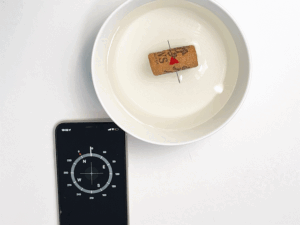
3-9 y.o.
Easy
15-30 min
For the experiment, you will need:
- Needle
- Bowl filled with water
- Magnet
- Cork
- Pen
1. Prepare
Prepare all the needed tools for the experiment.
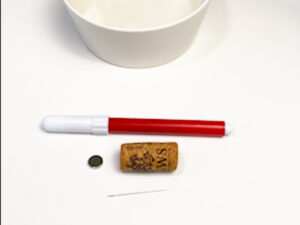
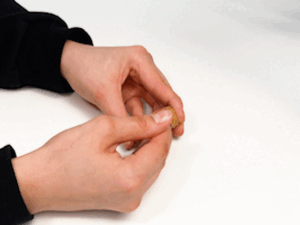
2. In the cork, with the help of a needle, make a hole
The process will be facilitated by a support with which the needle is pushed.
Pierce the needle several times through the hole back and forth. This will make it much easier to perform step 4.

3. Needle magnetization
Holding the needle, magnetize it by moving the magnet along the entire length of the needle, from the hole to the spike. Repeat this step about 50 times.
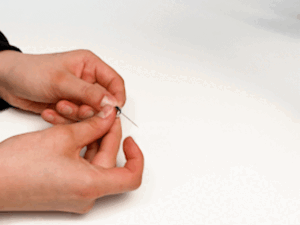
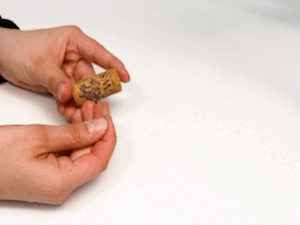
4. Needle in the cork
Insert the needle into the already made hole in the cork.

5. Northern direction
To make it easier to determine on which side the north is, draw a small arrow on the middle of the cork, in the direction of the pointed end of the needle, with a pen
The pointed end of the needle will point in a Northern direction.
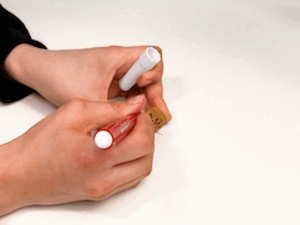
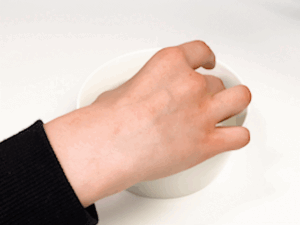
6. Water
In a bowl with water, put a cork with a needle.

7. Working compass
Watch how the needle begins to rotate. It should stop when the tip of the needle is directed to the north, and the needle hole – to the south. Check the accuracy of the compass you make using the smartphone compass app or a real compass!
IMPORTANT. Do not allow the cork with the needle to approach the edges of the bowl, this will stop the needle from twisting, the compass may lose its accuracy
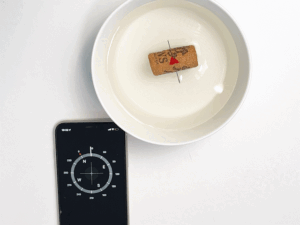
How does it work?
Each magnet has a north and south pole. Each pole attracts opposite poles to itself, and similar ones repel.
Our Earth is a giant magnet, the magnetic field of which stretches from south to north. This field helps to function compasses, since their north pole directs to the geographical north of the Earth, which, in fact, is its magnetic south.
